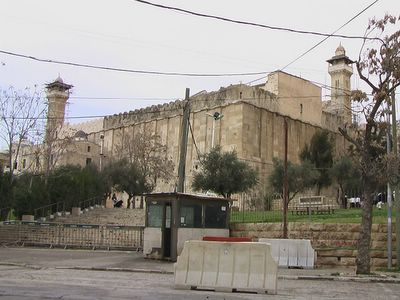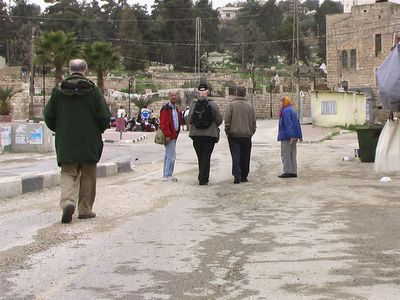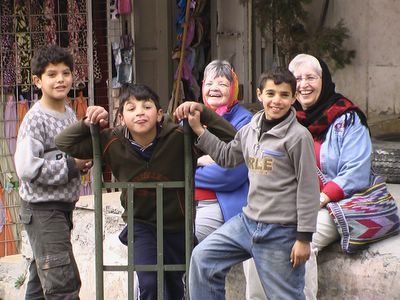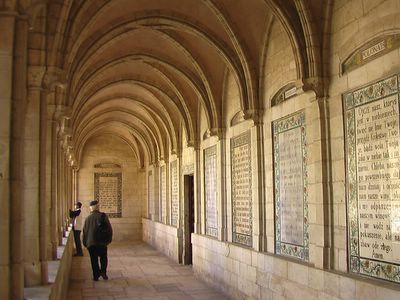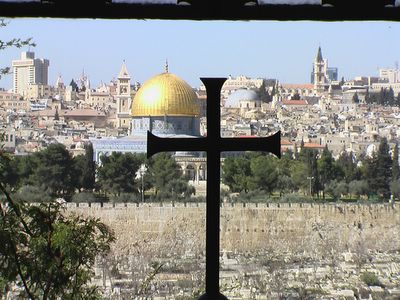Islam - Part III
FIVE BASIC BELIEFS OF ISLAM
1) The Oneness of God: God is one and only one and has no partner. There is no one like God. The Qur’an lists ninety-nine attributes of God such as God is merciful, compassionate...etc. Allah expects believers to have a direct relationship with God.
2) Doctrine of the Angels of God: There exists an unknown number of angels that are created of light, and endowed with life, speech and reason. The angels are free from carnal desires and from the disturbance of anger. Their food is to celebrate God’s glory. Their drink is to proclaim God’s holiness. Their conversation is to commemorate God. Their pleasure to worship God.
Angels are created in different forms and with different powers. Islam teaches that there are four arch angels: 1. Michael who is the angel of rain, 2. Israfiel who is the angel who will announce the advent of the resurrection, 3. Azrail who is the angel of death, and 4. Gabriel, the angel who revealed to Muhammad the word of Allah, the Qur’an.
Islam teaches that there are two angels who accompany each human individual from birth to death. One angel is positioned on the right shoulder whose obligation it is to record the good deeds performed by the individual. The other angel who sits on the left shoulder has the obligation to record the individual’s bad deeds. The day of judgement is based upon a combination of one’s beliefs and one’s deeds.
3) The Scriptures of God: Islam teaches that God through the diverse ages of the world gave revelations of His will in books to several prophets. The number of these sacred books is said to be 104. Ten books were given to Adam, fifty books were given to Seth, thirty books were given in Arabic to Idris (Enoch), ten books were given to Abraham, four books known as the Pentateuch were given to Moses, the book of Psalms were given to David, the Gospel was given to Jesus, and finally, the Qur’an was revealed to Muhammad.
Further, Islam teaches that these books were ALL lost except the last four. Islam gives no credit to the present copies of the Pentateuch, the Psalms, nor the Gospel as they believe these books have undergone many alterations and corruptions, though there might possibly be some parts of these books that are the true Word of God. The real test is based on whether or not the content of these books is mentioned in the Qur’an. If it is mentioned in the Qur’an, then it is the true Word of God. Since there is no mention of the crucifixion of Jesus in the Qur’an, this event is judged to be not the true Word. Islam holds that the Qur’an contains the only final true Word of Allah (God).
4) The Apostles of God: Islam teaches that there were 313 prophets, of which only 25 are to be remembered and are mentioned in the Qur’an. The list of prophets is: Adam, Noah, Heber, Methuselah, Lot, Abraham, Ishmael, Isaac, Jacob, Jethro, Aaron, Moses, David, Solomon, Job, Isaiah, Jonah, Elias, Elijah, Zechariah, John the Baptist, Jesus, and Muhammad. All prophets are understood to have been born and died. About Jesus, Islam teaches He is the only prophet who did not die, but rather ascended into heaven directly; that Jesus was born to a Virgin (Mary), that His birth was a miracle, that Jesus performed miracles (unlike Muhammad), that someone like Jesus was crucified, but not Jesus; Muslims do not accept that God would require such a sacrifice and would not have a prophet suffer in such a way. Muslims believe that Jesus is in heaven with God as a prophet of God and that one of the signs of the Judgement Day is the return of Jesus.
5) Belief in the Resurrection (Judgement): Islam teaches that birth and death are related to the will of God. We are born, we live, and we die according to God’s will. When we die Islam teaches that at upon burial two angels interrogate the dead regarding their belief. When the interrogation is complete the separation of the spirit and the body occurs and that the spirit of the dead remains among us, but that the body decays until the day of the Judgement when we are resurrected both bodily and spiritually and the soul and body are reunited. Everyone goes through the process of judgement including the prophets. All the believers (not just Muslims) will go to heaven. Islam teaches that the final judgement is up to God, a belief that is not understood by all Muslims.
FIVE RITUALS OF ISLAM (Ibadat)
There are five rituals which are the implementation of the five beliefs.
1. "Shahadah" - which is to declare, witness, to stipulate that "there is no God but God and Muhammad is His prophet."
2. "Salat" - prayers which consist of five sets of prayers each day - morning, noon, high noon, sunset, dusk. Muslims pray facing in the direction of Mecca, the birthplace of Muhammad.
3. "Saum" - fasting from sunrise to sunset during Ramadan which is the ninth month of the Muslim Calendar and the month during which the first revelation was received by Muhammad. The fast is broken at end with a feast and visiting with families.
4. "Zakah" - alms giving, a practice required of all Muslims when total wealth is calculated and two and a half percent given to the poor. Or one can to the "wakf," a Muslim fund for helping the poor through many kinds of community projects.
5. "Hajj" - to make a pilgrimage to Mecca once in a lifetime if you can afford it and are in good health AND you have FIRST helped your family members or neighbours who is in need.








